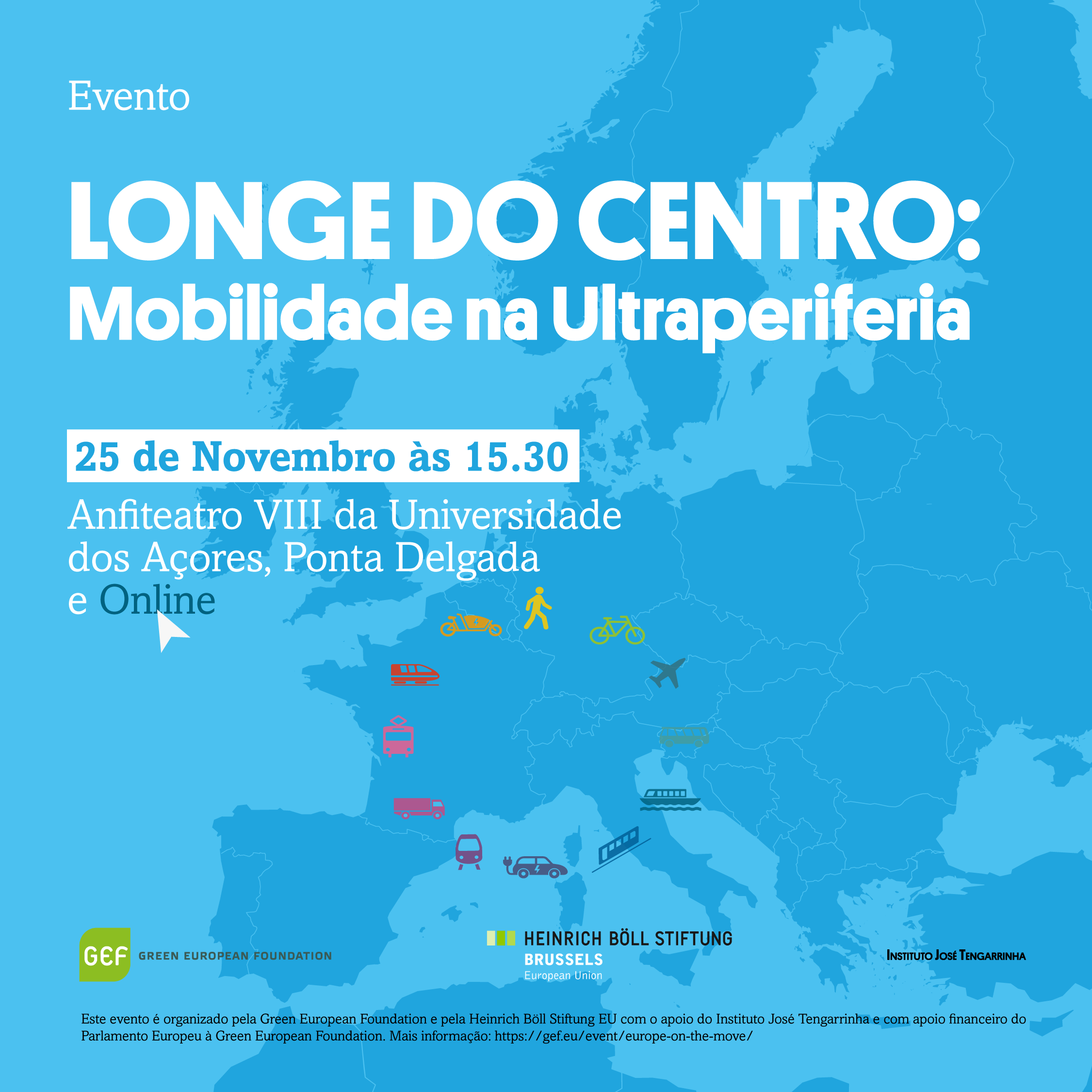
- This event has passed.
Far from the Center: Mobility in the Ultra-Periphery (Ponta Delgada)
2023

Ultra-peripheral regions suffer from a double mobility problem, getting to them is difficult and costly, and transportation inside those regions is underdeveloped. How can we rethink these problems with the Green agenda in mind?
About
Mobility plays a crucial role in shaping the quality of people’s lives by influencing multiple aspects. To name a few examples, it determines which jobs people can apply to, how often they can see relatives and friends, and the amount of free time they have. It can also amplify prejudice and inequality, namely those regarding gender, race and others. The way people move has a huge impact on the environment that should always be taken into consideration.
With both wonderful but challenging geography, the Azores is a good place to discuss these problems as there is much work to be done towards sustainable mobility that works for all. Far from mainland Portugal, travelling to or from Azores is not affordable to everyone’s pockets; there are inequalities between the islands in the archipelago, with some having much better connections than others. In this debate, we seek to address the pressing issues connected to mobility in the ultra-periphery with multiple analytical and geographical lenses. We will bring together diverse perspectives to analyse the challenges and opportunities for mobility on island and in ultra-peripheral contexts, the impacts of tourism on mobility and how mobility is also a gender issue. Besides the Azorean perspective, we welcome an international panel with insights from Greece, Croatia and Spain.
Project background
This event is part of “Europe On the Move: Shaping the Future of Sustainable Mobility in the Iberian Peninsula”, which aims to nurture the debate in Portugal and Spain around the future of mobility and the Green Deal, with a particular eye for the challenges and opportunities for sustainable mobility and how they relate to Iberian realities.
Speakers
o Filipe Roque (moderator) – Councillor of Ponta Delgada, Portugal
o Henar Martín – Consultant of Sustainable Mobility in Canarias, Spain
o Nikolina Rajkovic – Institute for Political Ecology, Croatia
o Rosa Simas – Universidade dos Açores e Universidade Nova de Lisboa, Portugal
o Theocharis Tsoutsos – Technical University of Crete, Greece
Programme
- Introduction and presentation of the speakers
Filipe Roque (moderator) – Councillor of Ponta Delgada, Portugal
- Mobility on the island: the Azorean case
Nikolina Rajkovic – Institute for Political Ecology, Croatia
- The impact of tourism on mobility
Theocharis Tsoutsos – Technical University of Crete, Greece
- Sustainable mobility in and between islands
Rosa Simas – Universidade dos Açores e Universidade Nova de Lisboa, Portugal
- A gender perspective on mobility in Azores and its links with sustainability
Henar Martín – Consultant of Sustainable Mobility in Canarias, Spain
- Mobility in the ultra-periphery, the example of Canarias and connection with sustainable mobility
- Moderated discussion followed by Q&A
Practicalities
Date and Time: 25th November, 15:30pm-17:30pm GMT-1
Location: Anfiteatro VIII, Universidade dos Açores and Online (streamed on GEF Youtube).
Language: The main languages of the event will be Portuguese and English, with simultaneous interpretation provided EN<>PT.
Registration: This is public event; no prior registration is required.
Social media event page: Longe do Centro: Mobilidade na Ultraperiferia | Facebook
Recommended reading: European Mobility Atlas
This event is organised by the Green European Foundation and Heinrich Böll Stiftung EU with the support of Instituto José Tengarrinha and the financial support of the European Parliament to the Green European Foundation



